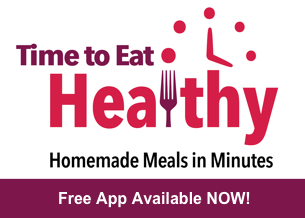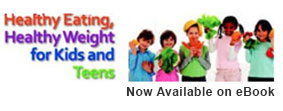Do Kids Really Need Snacks?
By: Jodie Shield, RD
Preschoolers have tiny tummy capacities. Teens are eating machines. Three daily meals may not be enough to provide all the nutrients kids require. Because many kids need to eat snacks to help them grow properly and to fill any nutritional gaps, snacks are an important part of your child or teen’s day.
On the other hand, snacking has gotten a bad rap – and rightly so! Today’s on-the-go family lifestyle interferes with sit-down family meals, and as a consequence some kids snack up to six times a day. This sort of frequent snacking is called “grazing,” and it may cause some kids to overeat. In fact, kids between the ages of two and 18 are getting about 526 calories a day from snacks , which is roughly a 200-calorie-a-day increase compared to a decade ago. Multiply 200 calories by 365 days, and you’re looking at a weight gain of 20 pounds in a year. Yikes! To make snacking matters even worse, kids are no longer munching on apples and sipping milk. Nowadays, they generally snack on foods like cookies and soft drinks that provide extra calories from added sugar and solid fat.
So, does snacking really cause kids to be overweight? At this time, most research indicates unhealthy weight gain is not related to how often kids snack, but it does seem to be related to what they are snacking on and how much they eat or drink. The key to smart snacking is planning: offer your kids healthy snacks at regularly scheduled times. To help you teach your kids healthy snacking habits, here are some guidelines from our new book Healthy Eating, Healthy Weight for Kids and Teens (Eat Right Press, 2012):
Who should snack? No restrictions here. Most kids all ages need to snack. Even if kids are overweight, a healthy snack can fit into their daily eating plan.
Why Should Kids Snack? At each age and stage of growing up, kids need snacks. Here are some of the reasons.
Preschoolers – Preschoolers are, of course, much smaller than adults, but pound-for-pound their total calorie needs are comparable. Young children’s stomachs are not large enough to get enough calories from only three meals a day. They’re like cars with small gas tanks. They need refueling throughout the day.
Children Ages Five to 12 – Kids in this age group need snacks to help them grow and learn. Early school lunch hours followed by a long stretch before dinner, can leave children and tweens running on empty. Kids who eat balanced snacks pay better attention in class, make fewer mistakes on tests, and generally have fewer behavior problems.
Teenagers: During the teen years, calorie needs are at an all-time high, especially for boys. Rapid growth spurts, intense sports workouts, and staying up later at night leave teens ravenous. It’s no wonder they have snack attacks.
When Should Kids Snack? Unplanned, random snacking can lead to problems, especially with weight. Nonstop snacking interferes with kids’ appetites and can disrupt their natural instinct to experience hunger and fullness. On the other hand, snacks can actually help kids achieve a healthy weight when they are timed correctly. Most children and teens need to eat every three to four hours throughout the day.This translates into the following:
- Younger kids need to eat three meals and at least two snacks a day.
- Older kids need to eat three meals and at least snack one snack a day (they may need to if they’re going through a growth spurt or if they are very physically active).
And be sure to offer planned meals and snacks consistently throughout the day. A good rule of thumb is to offer snacks a few hours after one meal ends and about one to two hours before the next meal begins. Postponing snacks until a few hours after a meal helps prevent kids from refusing food at a meal and then begging for more food as a “snack” just after the meal ends. On the other hand, putting a stop to snacking immediately before meals encourages a healthy appetite at mealtimes. Above all, remember the bottom line: if snacks are planned, coordinated with meals, and served consistently at regularly scheduled times, kids are more likely to be a healthy weight.
What Should Kids Eat for Snacks? As you plan snacks, be creative and get kids involved. Here are some kid-friendly snack ideas that include at least two food groups from MyPlate. You can also find snack recipes in our book and on our Web site www.healthyeatingforfamilies.com
- Whole-grain cereal and fat-free milk
- Fat-free plain yogurt and fresh berries
- Whole wheat pita and hummus (chickpea dip)
- Apple or pear slices topped with low-fat peanut butter
- Oven-baked bagel chips and salsa
- Dried cranberry and peanut mix
- Plain microwave popcorn and 100% fruit juice
- Quesadilla (whole wheat soft tortilla and low-fat cheese, folded and heated)
- Flaked tuna or salmon and chopped celery, with low-fat mayonnaise
- Microwave-baked potato topped with salsa and shredded low-fat cheese
- One cup of tomato soup (made with low-fat or fat-free milk) and whole grain crackers.







posted by gabriel on November 29, 2022
yes kids do need snacks